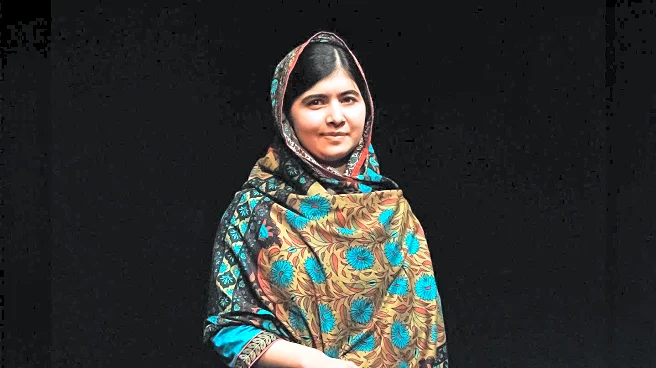What's Happening?
Malala Yousafzai, renowned activist and Nobel laureate, shared insights into her life and advocacy journey on NPR's Fresh Air. After surviving an assassination attempt by the Taliban in 2012, Yousafzai has continued to champion girls' education worldwide.
Her memoir, 'Finding My Way,' explores her experiences at Oxford University and her personal growth, including dealing with PTSD and her decision to marry. The interview with Tonya Mosley delves into Yousafzai's reflections on her childhood, the impact of her Nobel Prize, and her ongoing commitment to education and empowerment.
Why It's Important?
Malala Yousafzai's story is a powerful testament to resilience and the impact of advocacy on global education. Her experiences highlight the challenges faced by young activists and the importance of supporting educational initiatives for girls. As a symbol of courage and determination, Yousafzai's journey inspires individuals and organizations to prioritize education and gender equality. Her insights into personal growth and overcoming adversity resonate with audiences, emphasizing the need for mental health support and empowerment in activism.
What's Next?
Yousafzai continues to advocate for girls' education through her foundation and public engagements. Her memoir may inspire further discussions on the role of education in empowering young women and addressing global inequalities. As Yousafzai navigates her personal and professional life, her influence on educational policies and initiatives is likely to grow, encouraging collaboration among governments, NGOs, and communities to advance gender equality.
Beyond the Headlines
Yousafzai's advocacy underscores the ethical and cultural dimensions of education and empowerment. Her experiences highlight the intersection of personal growth and public activism, offering insights into the challenges faced by young leaders. The conversation around mental health and resilience in activism is crucial for supporting future generations of advocates.















